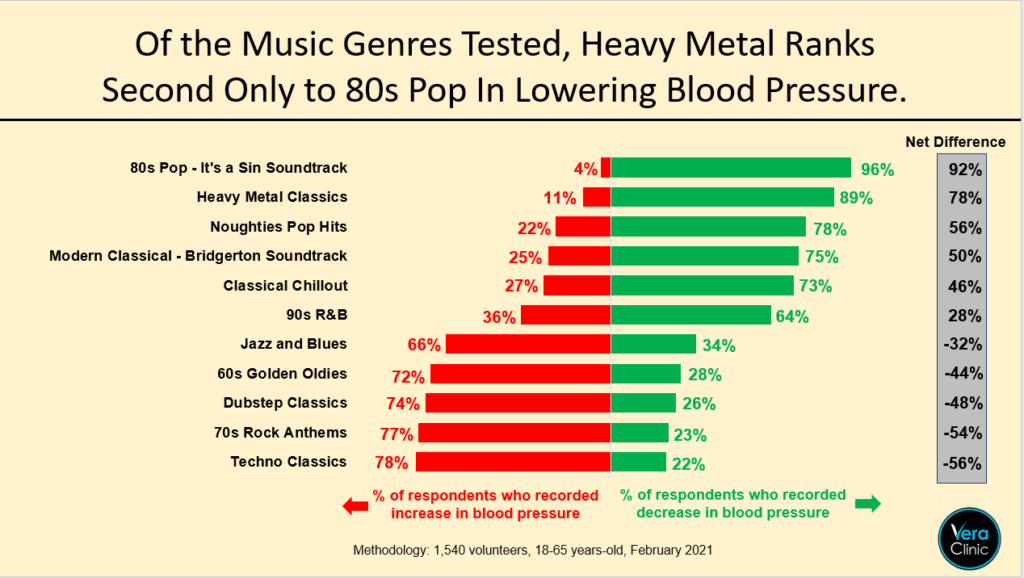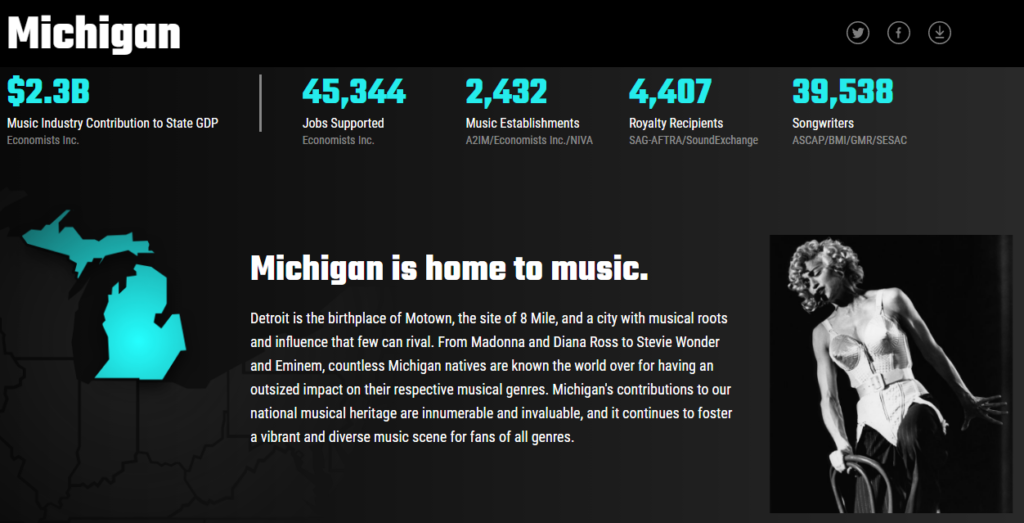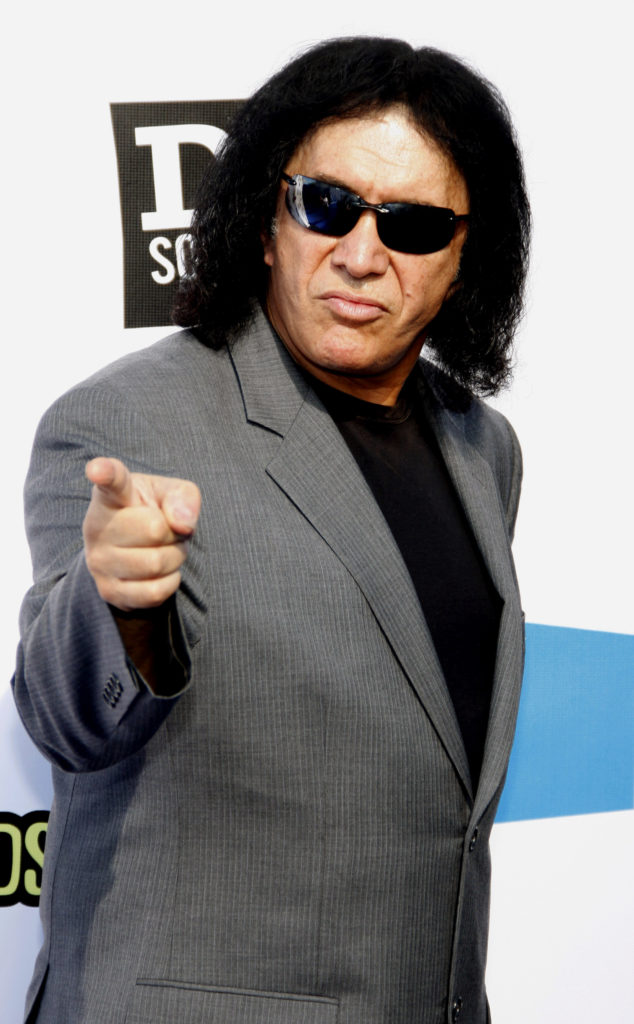
Not to channel Alan Cross, author of the highly entertaining column, A Journal of Musical Things, but today’s blog post takes a breather from its usual “What’s the deal with radio?” theme, and instead takes us on a tour of the music landscape, always fertile ground for great stories.
Music helped many of us get through COVID. People have told me that crafted music playlists were their soundtrack throughout the pandemic. Others enjoyed the music on their favorite radio stations, along with trusted personalities. And podcasts have enjoyed a good year, too. But music was a common thread for many – the mood changer, the calming influence, the motivator.
For many, a well-selected playlist or a craftily curated music set can be the soundtrack to our life experiences. Music matters, and reflects our emotional state and well-being.
Over the past week or so, I’ve been collecting music stories to amaze and perhaps even astound you. Let’s start with the first one that comes ironically from the health field.
1. Heavy Metal will lower your blood pressure

In what seems to be a musical and medical contradiction, it turns out Heavy Metal music may, in fact, have a calming influence on your system. In fact, a research study sponsored by Vera Clinic shows that listening to metallic-infused music can cut down on anxiety, lower blood pressure, and even decrease your heart rate.
Overall, more than 1,500 volunteers aged 18-65 were given non-verbal reasoning tests while various Spotify playlists played in the background. Each responded wore heart and blood pressure monitors throughout the completion of this task to track their health as the music played.
Of the eleven different genres of music, Heavy Metal finished second (just behind ’80s Pop) in its apparent ability to lower anxiety, heart rate, and blood pressure. On the other end of the stress spectrum, nearly eight of ten who listened to Techno experienced elevated blood pressure scores.

If you’re questioning these findings, Loudwire’s Philip Trapp reminds us this isn’t the first time academia has reached this conclusion. Back in 2019, Ph.D. psychologist Nick Perham posited that metal fans “who were made angry and then listened to heavy metal music did not increase their anger but increased their positive emotions suggesting that listening to extreme music represents a healthy and functional way of processing anger.”
If this sounds counter-intuitive, this research suggests perhaps we don’t know as much about the effects of music as we thought. Then again, a deeper look at who sponsored the research is revealing – sort of.
Vera Clinic is a Turkish company specializing in hair restoration and cosmetic surgery. Why they would commission a study of this kind is a mystery, as is whether the respondents were Turks or other nationalities.
Still…
Somewhere Ronnie James Dio is smiling.
Thanks to Erica Banas, Senior Editor/Rock Maven with Beasley for tipping me off to this story.
2. The 50 States of Music
Yes, they have an agenda, but a consortium of 10 high-profile music organizations, among them BMI, ASCAP, the RIAA, and SoundExchange, has put together a fascinating interactive map of the music business in America.
The 50 States of Music is a clever web application that allows users to check out a state-by-stage musical profile, including music revenues, artists, and featured venues. We’re all interested in how our states stack up against their 49 peers, so this endeavor will undoubtedly prove to be popular – perhaps even morning show fodder.
In the U.S., the total footprint of the music business (ostensibly in a non-COVID year) is impressive. It comes to $170 billion, employs nearly 2.5 million people, and supports more than 230,00 music venues all over America. Not surprisingly, California leads the nation in overall revenue, roaring in at nearly $40 billion.
The state profiles are revealing and interesting, if not a bit incomplete. Some might say lacking or even accurate.
Here’s my home, Michigan, a good illustration of one of these state profiles.

At first glance, it looks fine. And they even included the Upper Peninsula.
Madonna as the symbol of Michigan music? They might have gone with Bob Seger, who isn’t just from the state, but exudes its blue collar, rock n’ roll image. OK, that’s me getting picky.
It’s when “50 States” lists notable artists from around the state that things get a little wiggy. Michigan (as the descriptor above notes, produced “countless” artists with “outsize impact.” And here’s the roster of artists around they state they chose to highlight:

I understand that it’s hard not to leave some stars out. But while Motown is represented by Smokey, Marvin, Martha and the Vandellas, Diana Ross (without the Supremes?), somehow the Temptations and the Four Tops aren’t on the list. It gets weirder. Somehow, the Temps are credited to Alabama.
And then there are other omissions, including Jack White, Ted Nugent, Grand Funk, not to mention the Romantics and the Knack. Or Iggy Popp, George Clinton, and Mitch Ryder. And wait, there’s Sam Cooke, Jackie Wilson, and Al Green. And I’m just getting going.
So, the weird part is that the Commodores made the graphic – a Motown label artist but not from here (they are also listed accurately in Alabama’s notable musicians list). And similarly, Gladys Knight & the Pips, another great ensemble – but from Georgia (where they’re also double-listed). Remember where that “Midnight Train” was headed? No, they’re not from Michigan either.
I don’t want to get all Sean Ross on you, but when respected, august music organizations don’t get some of these basics right, it detracts from their overall effort.
3. I’m actually agreeing with Gene Simmons
You may remember last week’s blog, “Why Does New Music Suck?” made some waves, generating lots of comments, here and on social media.  As I concluded at the time, “current” conditions are being impacted by any number of things, including the death of albums, digital fragmentation, the strength and popularity of older music, and of course, the debilitating effects of COVID.
As I concluded at the time, “current” conditions are being impacted by any number of things, including the death of albums, digital fragmentation, the strength and popularity of older music, and of course, the debilitating effects of COVID.
In short, no smoking gun. Like most things, it’s complicated.
But now, someone in a position of authority, well beyond my pay grade, is weighing in. KISS front man and Rock N’ Roll Hall of Famer, Gene Simmons, is never at a loss for words. In a recent interview in Heavy Consequence, Simmons reiterated earlier claims he’s made that “Rock is dead.”
In the interview, he goes off on the fleeting appeal of “boy bands” as well as the lack of musicianship in EDM. Simmons also avers that even though he’s an admitted Foo Fighters fan, they’re not in the same league with the Fab Four and other classic bands from the ’60s and ’70s.
Here are some of the pithier quotes from his interview:
“‘Rock is dead’ – you bet your ass it is – not because the talent isn’t there but because the business model just doesn’t work.”
“The reason (rock is dead) is not because there’s a lack of talent, but because young folks, that kid living in his mom’s basement, decided one day that he didn’t want to pay for music. He wanted to download and file share. And that’s what killed the chances for the next generation of great bands. The fact that the music was for free. So nowadays, new bands don’t have a chance.”
“Don’t just go see Metallica and Taylor (Swift) or KISS. On the weekends, go to a place that’s got live music.”
That’s a good plan. Have a great weekend, and let’s hope we’ll be able to start frequenting blues bars, rock clubs, and other small venues.
- What To Do If Your Radio Station Goes Through A Midlife Crisis - April 25, 2025
- A 2020 Lesson?It Could All Be Gone In A Flash - April 24, 2025
- How AI Can Give Radio Personalities More…PERSONALITY - April 23, 2025




The sum total contributions of Stevie Wonder and Smokey Robinson put every other name in another category. While Bob Seger perfectly represents a blue collar image, the fact that these other two had two solid decades of non-stop writing, producing, recording and performing in the 60’s and 70’s – will never be duplicated. The sheer volume of hits is staggering. Of all living American pop musicians, these two men stand alone.
Michigan is in a class by itself.
It’s a good probllem to have, right? Too many incredible artists to even mention. I’m getting coomments that I’ve missed everyone from the MC5 to Lord Huron.
This is why I have lamented why the RnR Hall isn’t in Detroit. But I digress.
You’ll get no argument from me on this, Tai. I could go either way. But I will push back on Louise Cicconne. She’s immensely talented, of course, and there’s no denying her superstar status. But the symbol of music from the state of Michigan? I think not.
Great blog today, Fred.
Excuse me, while I get out my Mitch Ryder “DETROIT” album, and listen to their version of “Rock n Roll”. A gem!
JC, “her life was save by rock n’ roll.” Glad you enjoyed it.
I see the list on Michigan also doesn’t include an individual with an “outsized impact” on at lease two musical genre’s – James Osterberg Junior.
Iggy Pop – or Mr. Pop as the New York Times calls him – is the Godfather of Punk and would there even be a Nirvana without the Stooges?
Again Fred, lists are a dangerous thing.
That is of course unless you want to get a reaction which I suppose are what lists are always about anyway.
Lists are indeed dangerous, Mike. Here’s another oddity. They could have used a smaller font for Michigan (check out other states and they did just that), which would have allowed them to squeeze in at least another 20 or so artists. Yes, there would still be snubs, but at least fewer of them.
They list my state New York and don’t list Dion and Lou Reed (though I was happy to see Pete Seeger highlighted)?
They list Massachusetts and don’t list Jonathon Richman?
You don’t list John Prine and Steve Goodman for Illinois?
Of course you are going to leave people out but for my money, those are names that are synonymous with those states. Waaaay too many omissions and we aren’t even going deep.
But you don’t get “engagement” by being right. As Howard Stern said, “People who like you listen. People who hate you listen longer”.
Ah, and no Brownsville Station. I’ve been posting and talking about this for 15 years or more. I started thinking it was just sour grapes but it’s not. This pandemic has put a magnifying glass on it because with no LIVE shows, even the biggest artist in the world are have issues. Yes there are artist such as Gene Simmons that could take the next 25 years off. However, everyone associated with the live industry that count on big brands touring has gotten killed. To get back to the subject, brands (music artist) count on touring revenue because actual music sales is deeply anemic. Their point of sale is at the shows so touring is king. I also believe this is why established artist are selling their catalogs. Getting out while the getting is good. From professional personal experience, Gene Simmons is dead on, completely on point.
Shame on me for the omission, Billy. Appreciate the perspective on this, and I expect more David Crosby liquidation sales. I’m still trying to figure out NFTs!
Great post, but I have to disagree that “kids downloading music in their basement killed the industry”. The executives’/musicians’ greed killed the industry. Not only were the products (16+ song albums) getting worse, the price to see a live show was increasing to the point that many couldn’t afford to see their favorite band live. Thus, you had the rising bootleg market.
Josh, thanks for this. As I’ve mentioned in a number of posts, there’s no “smoking gun.” There are lots of reasons why rock (and other music genres) have stalled out. And I think you’ve nailed an important factor.